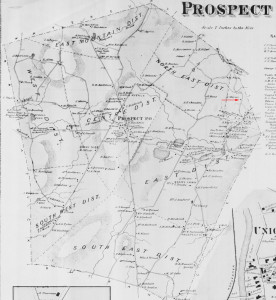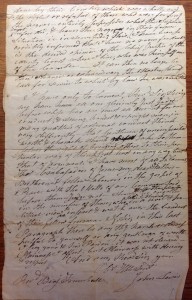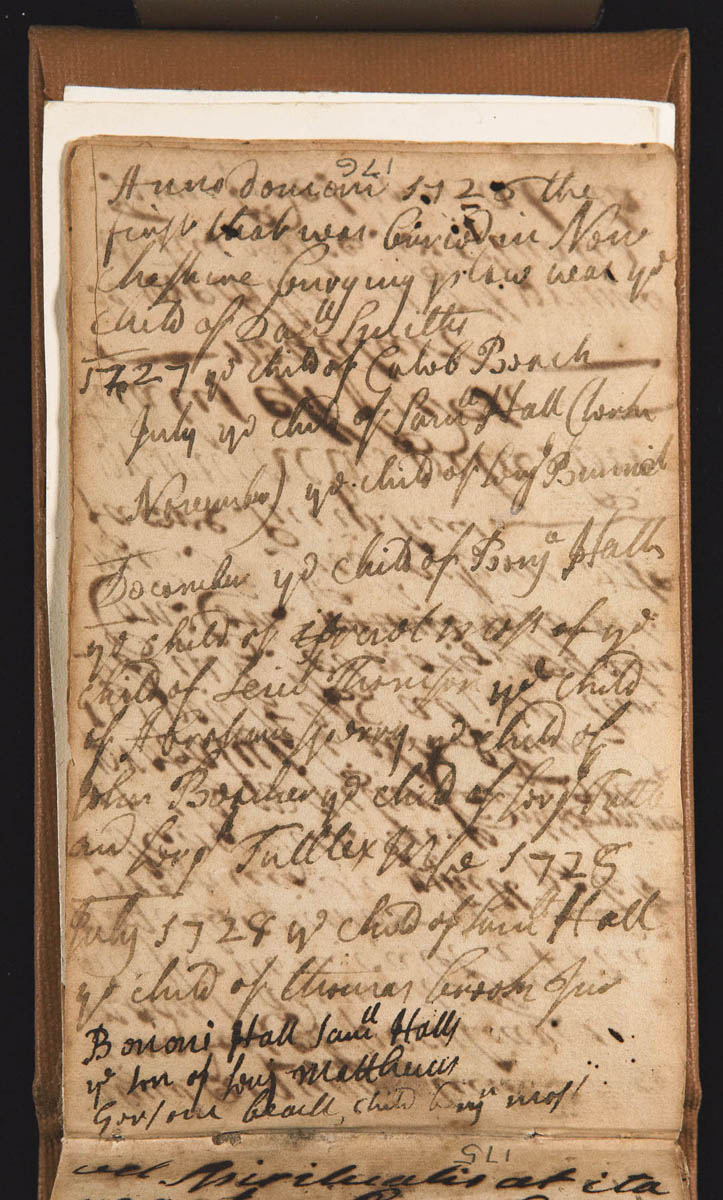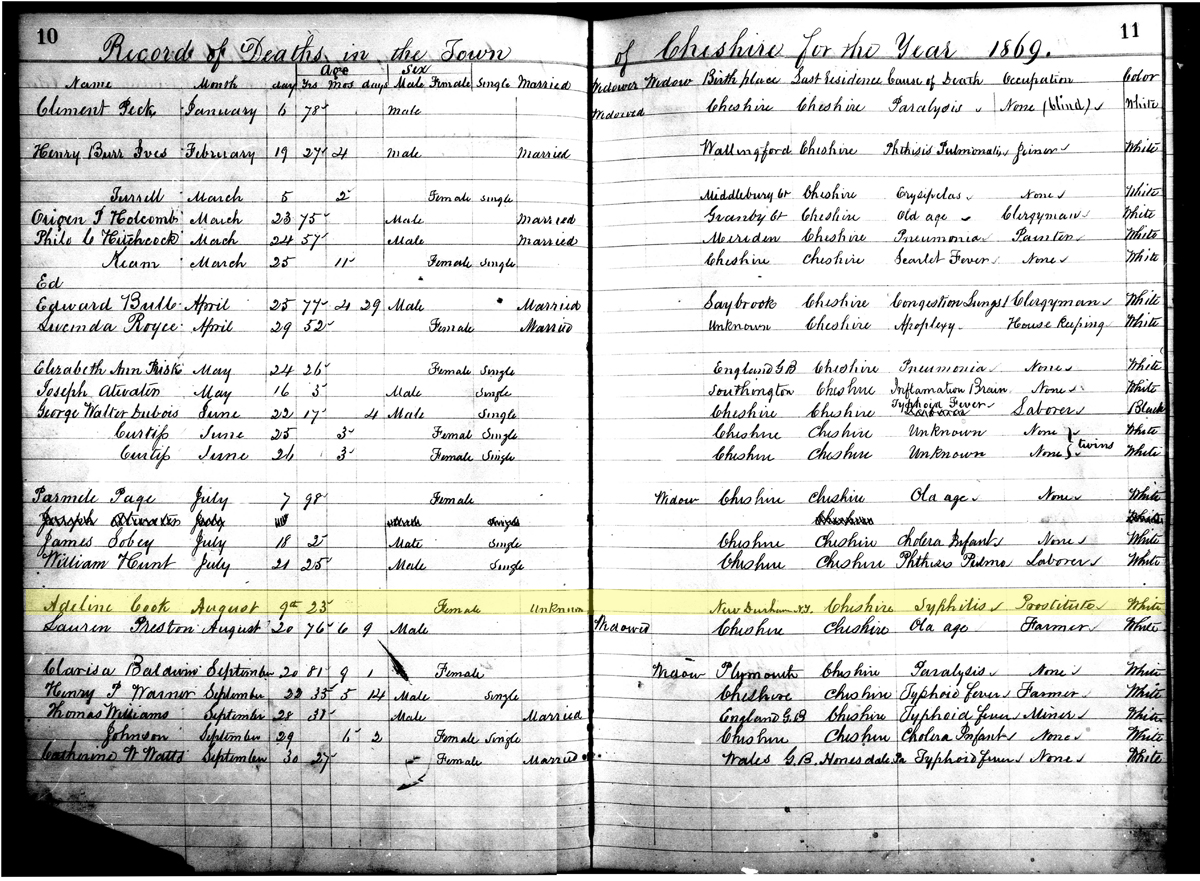 So a reader commented on the Slavery in Cheshire post asking about slaves in Prospect and connections to Milford. I started writing a reply but had to write a post instead.
So a reader commented on the Slavery in Cheshire post asking about slaves in Prospect and connections to Milford. I started writing a reply but had to write a post instead.
Slavery existed throughout the state of Connecticut, even in small towns like Prospect. And when you really start looking, you see how connected everything is. Prospect was part of Cheshire until 1827 when it was incorporated as its own town, so any records of slaves who may have lived in the “West Rocks” would likely be in Cheshire or Waterbury. There were surely free blacks working in Prospect as well. There was a small settlement of freed African Americans on Mountain Road between Cornwall Avenue and Rt. 68 in the early to mid 19th century. Andrew Oliver, who lived there at some point before 1868, is credited with being the first African American resident of Prospect (on Plank Road).
To learn more I looked at the history of the church in Prospect and felt the wind knocked out of me. Reverend John Lewis was the first pastor of the church in Prospect. My head began to spin and the world got a whole lot smaller. And I was right back to Rhoda.
In 1779 Joseph Hall of Cheshire sold Rhoda’s daughter Lilly to Rev. John Lewis. Now all the General Assembly papers call him Rev. John Lewis of Wethersfield so I always wondered where his connection to Cheshire came from. I knew Lewis was born in Southington, but he had left for Yale in the 1760’s, so I always figured the connection came through his family. In Ecclesiastical and Other Sketches of Southington, Conn. Timlow says that Lewis, who graduated from Yale in 1770, was a tutor there from November 1773 to May 1778. However no further trace is found of him until he was called to the church in Stepney Parish (which was Wethersfield then and Rocky Hill now) in 1780.
This means Rev. Lewis purchased Lilly from Joseph Hall while he lived in Prospect. So this answered my readers question – there was at least one enslaved person in Prospect – Lilly, daughter of Rhoda and Dick Bristol. It also sort of addressed his hunch that there was some connection between Prospect and Milford – Rhoda, mother of Lily, was born in Milford in 1740. Not a strong direct connection, but a connection nonetheless.
 This may also help explain a bit about the animosity Lewis exhibited in a letter to Rev. Benjamin Trumbull regarding the kidnapping of Lilly in 1791. In 1795 the people of Prospect had petitioned both Cheshire and Waterbury to form their own church which both towns denied. In 1798 they built a church anyway. According to Beach, the church was a “strict Congregationalist” church of which Lewis was its first pastor. “Strict Congregationalists” were born out of the Great Awakening but believed that the church was no longer “pure”. These were extreme New Lighters. If Lewis was a “Strict Congregationalist” then he stood in direct opposition to the theology of Trumbull. But that is a more complex and detailed post for another day.
This may also help explain a bit about the animosity Lewis exhibited in a letter to Rev. Benjamin Trumbull regarding the kidnapping of Lilly in 1791. In 1795 the people of Prospect had petitioned both Cheshire and Waterbury to form their own church which both towns denied. In 1798 they built a church anyway. According to Beach, the church was a “strict Congregationalist” church of which Lewis was its first pastor. “Strict Congregationalists” were born out of the Great Awakening but believed that the church was no longer “pure”. These were extreme New Lighters. If Lewis was a “Strict Congregationalist” then he stood in direct opposition to the theology of Trumbull. But that is a more complex and detailed post for another day.
For now, I am just ecstatic to have found another piece of the puzzle. Thanks Michael!

